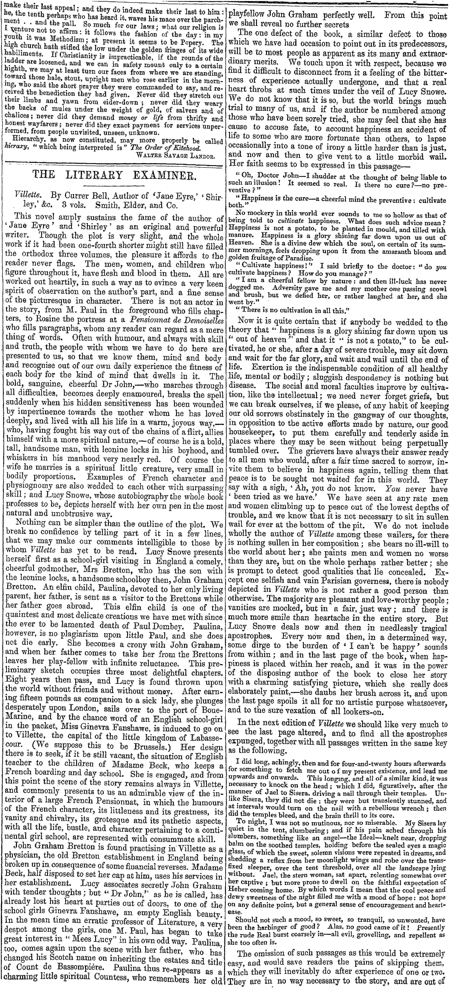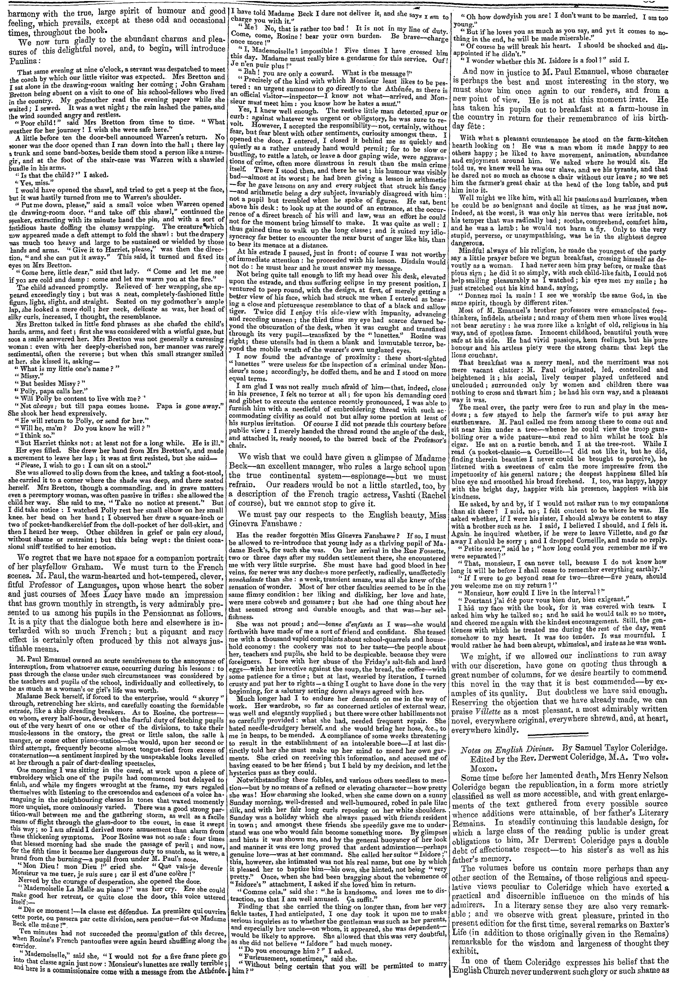|
From The Examiner (London, England), Saturday, February 5, 1853; Issue 2349
 An excerpt: An excerpt:
“The majority [of the characters] are pleasant and love-worthy people … But Lucy Snowe deals now and then in needlessly tragical apostrophes. … and in the last page of the book, when … it was in the power of the disposing author of the book to closer her story with a charming satisfying picture, which she really does elaborately paint, –she daubs her brush across it, and upon the last page spoils it all for no artistic purpose whatsoever, and to the vexation of all lookers-on.
In the next edition of Villette we should like very much to see the last page altered, and to find all the apostrophes expunged, together with all passages written in the same key as the following:
I did long, achingly, then and for four and twenty hours afterwards, for something to fetch me out of my present existence, and lead me upwards and onwards. This longing, and all of a similar kind, it was necessary to knock on the head; which I did, figuratively, after the manner of Jael to Sisera, driving a nail through their temples. Unlike Sisera, they did not die: they were but transiently stunned, and at intervals would turn on the nail with a rebellious wrench: then did the temples bleed, and the brain thrill to its core.
To-night, I was not so mutinous, nor so miserable. My Sisera lay quiet in the tent, slumbering; and if his pain ached through his slumbers, something like an angel—the ideal—knelt near, dropping balm on the soothed temples, holding before the sealed eyes a magic glass, of which the sweet, solemn visions were repeated in dreams, and shedding a reflex from her moonlight wings and robe over the transfixed sleeper, over the tent threshold, over all the landscape lying without. Jael, the stern woman; sat apart, relenting somewhat over her captive; but more prone to dwell on the faithful expectation of Heber coming home. By which words I mean that the cool peace and dewy sweetness of the night filled me with a mood of hope: not hope on any definite point, but a general sense of encouragement and heart-ease.
Should not such a mood, so sweet, so tranquil, so unwonted, have been the harbinger of good? Alas, no good came of it! I Presently the rude Real burst coarsely in—all evil grovelling and repellent as she too often is.
The review also serves as a rather choice example of the kind of prolonged excerpting protocol that Nick Dames highlights. In the selection below, the review includes passages with the first descriptions of Paulina, Ginevra, and Monsieur Paul; stating that it could “have gone on quoting thus through a great number of columns, for we desire heartily to commend this novel in the way that it is best commended–by examples of its quality.”

|

